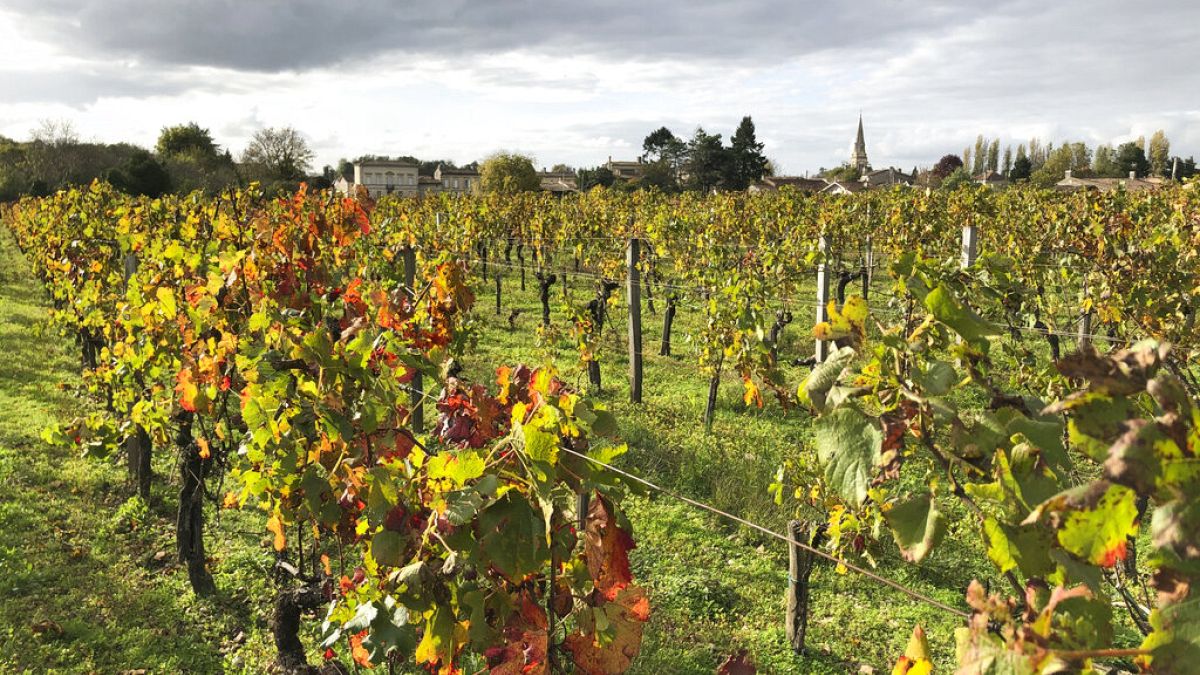Health concerns, a crackdown on drink-driving, changing habits among the younger generation, all of these factors are thought to be reasons why per capita alcohol consumption in Europe fell by 20% between 2000 and 2019, according to the World Health Organization (WHO).
Faced with flagging demand, some winemakers are betting on alcohol-free wine and opting for innovation to diversify sales.
Near the city of Charleroi, Associated Beverage Solutions has been producing alcohol-free wine since 2018 using vacuum distillation, a process that is said to preserve flavours and aromas better than other methods.
This technique involves heating wine in a vacuum to lower the boiling temperature of the alcohol to 35°C instead of around 90°C.
Dealcoholisation does, however, alter the taste of the wine so other ingredients and aromas are added afterwards.
“The taste and quality of alcohol-free wine are clearly improving. We’ve seen quite a few players on the flavour market or suppliers of oenological products who have taken an interest in alcohol-free wines, who have developed product ranges specifically for alcohol-free, which help us to make more interesting products,” Benoit Poisson, production manager at Associated Beverage Solutions, told Euronews.
The company produces alcohol-free white and sparkling wines in larger quantities than red and rosé.
“It’s more difficult to make a red wine without alcohol because there’s a more rounded sensation and the balance is more difficult to achieve once the alcohol has been removed,” Poisson explained.
And the customers are already there. The company’s production of non-alcoholic wine has risen from 1.2 million litres in 2019 to 5.3 million litres in 2024.
Its wine suppliers come mainly from France, Spain and Italy. The majority of its de-alcoholised wine production is then sold to Scandinavian countries, the Netherlands, Belgium and England, “historically more open to novelty” in terms of wines, according to Francis Aguilar, Managing Director of Associated Beverage Solutions.
0.0% or low-alcohol?
On 28 March, the European Commission presented an action plan to boost the competitiveness and resilience of the wine sector in the face of changing consumer habits, climate change and market uncertainties.
In particular, it proposes to support the marketing of 0% or low-alcohol wines by clarifying the rules and standardising definitions across the single market.
At present, the terms “zero alcohol”, “0.0%”, “alcohol-free” and “low-alcohol” are regulated differently across the EU and do not have the same alcohol content from one member state to another.
The Commission is therefore in favour of using the term “alcohol-free” to designate a wine with an actual alcoholic strength (ABV) not exceeding 0.5% by volume. The term “0.0%” would be added if this does not exceed 0.05% by volume. Finally, the term “low alcohol content” would indicate a wine with an ABV greater than 0.5% by volume and 30% less than the minimum ABV set for the category before dealcoholisation.
“We’ve chosen a process that produces 0.0%. As long as we can always put that forward, that’s what sets us apart here. But it’s important to keep things clear for consumers, so that they know what they’re buying with full knowledge of the facts,” said Benoit Poisson.
The Commission also wants the labelling of low-alcohol or alcohol-free wines to provide consumers with better information on the ingredients and methods of dealcoholisation.
Wine package
“From our point of view, the alcohol-free wine market helps the wine industry, given that wine with alcohol has to be produced first. So it keeps the vineyards, the winegrowers, the cellars and all that part of the sector going. We’re just going to be one more step at the end of the chain,” Benoit Poisson told Euronews.
While some winegrowers may have taken a dim view of alcohol-free bottles in the past, many have since changed their minds.
“In a way, wine has become the winemaker’s baby. And seeing it go through a process of de-alcoholisation is a bit difficult. But it was just the beginning,” says Francis Aguilar, before adding that dealcoholised wine is now “better accepted.”
In addition to promoting alcohol-free wine, the European Commission is recommending making it easier to grub up unwanted vines and remove grapes that are still green before harvest in order to prevent surpluses. It also wants to make replanting authorisations more flexible.
For the time being, the European wine industry is holding its breath, with its eye firmly fixed on the United States.
Donald Trump has threatened to overtax European wine by 200% if the European Commission retaliates with tariffs on bourbon.
Following pressure from Italy and France, the EU is expected to spare American whisky after all.
Read the full article here


